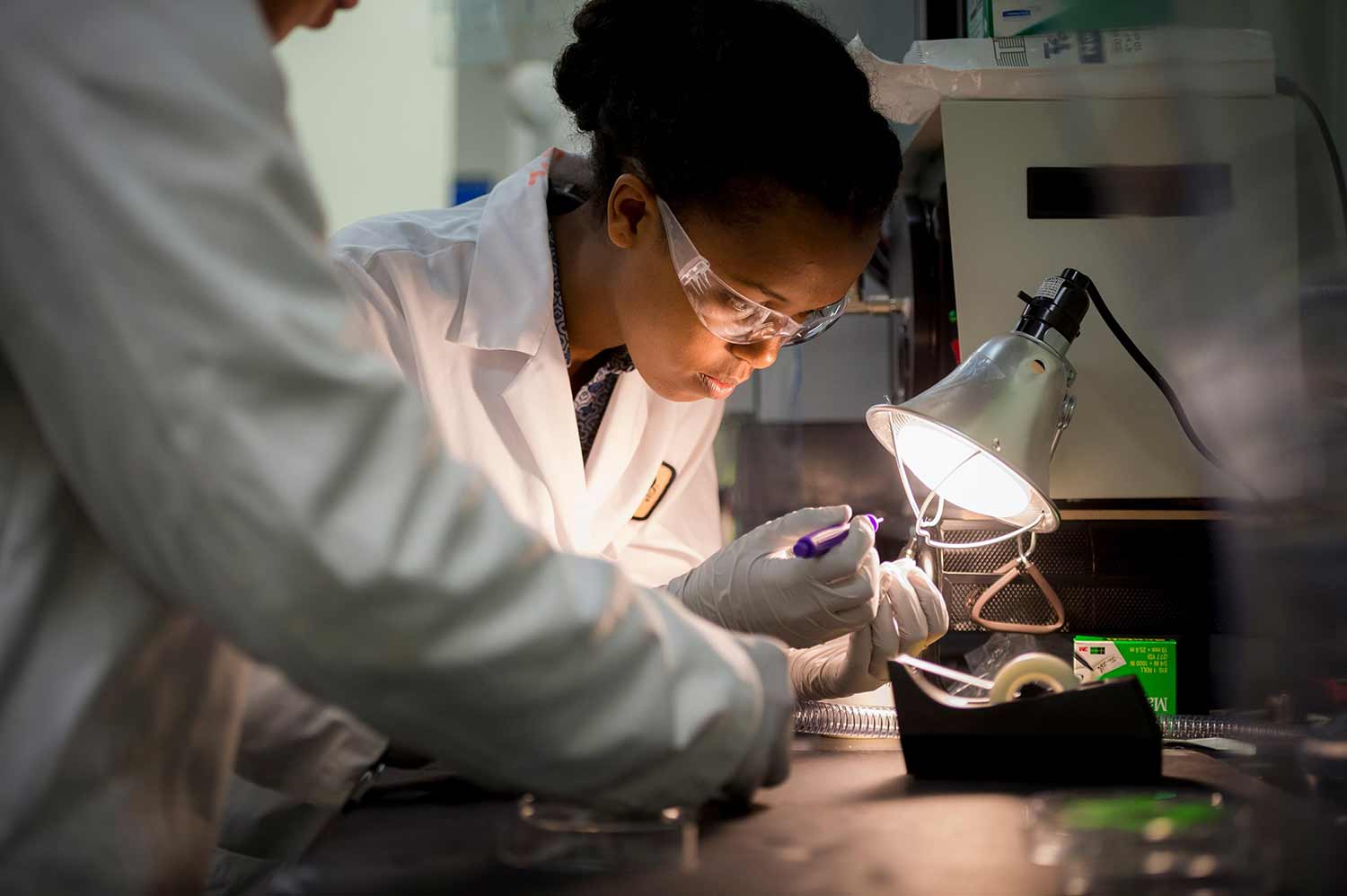Chancellor's Research Excellence Scholars Program Launches 175 Student-Research Projects
Three years ago, the University of California San Diego launched a pilot program to promote interdisciplinary research among undergraduate and graduate students and postdoctoral fellows. The idea was to partner them with faculty mentors from at least two disciplines and provide them with funds so they could conduct research with the potential to make a real impact on society.
Now that the program has proved its worth, UC San Diego is making the program permanent. Last September, applications were submitted and this month the Chancellor’s Research Excellence Scholars program, formerly Frontiers of Innovation Scholars Program (FISP), has awarded 175 students with this unique multidisciplinary opportunity.
“The Chancellor’s Research Excellence Scholars Program builds the teams of interdisciplinary experts that we need to address complex national and global challenges,” said Chancellor Pradeep K. Khosla. “Because of the measureable success of the pilot program, we will continue to invest in these multidisciplinary initiatives, so our students and scholars can continue to positively impact our community and world.”

Postdoctoral scholars and Ph.D. students were awarded up to $25,000 each; undergraduate students were awarded $3,000 each, with the funding going to projects led by principal investigators. In total, this year’s CRES awardees were granted a little over $2 million for multidisciplinary research across four specific research themes:
- Understanding and Protecting the Planet
- Enriching Human Life and Society
- Exploring the Basis of Human Knowledge, Learning and Creativity
- Understanding Cultures and Addressing Disparities in Society
“The student-research projects all support those research priorities and continue the university’s investment in access and affordability for all students interested in an exceptional educational experience,” said Vice Chancellor for Research Sandra A. Brown, whose Office of Research Affairs oversees parts of the CRES program. “These investments will forge new intellectual enterprises, which increasingly rely on the ability to work across diverse disciplines, either individually or as members of interdisciplinary teams.”
QI affiliates who will work with CRES recpients include:
- Jacqueline Kerr
- Sandrine Miller-Montgomery
- Tajana Rosing
- Jurgen Schulze
- Ryan Kastner
- Curt Schurgers
- Darren Lipomi
- Drew Hall
- Micheal Yip
- Eliah Aranoff-Spencer
- Pamela Cosman
- Truong Nguyen
- Sheldon Brown
- Boubacar Kante
- Jurgen Schulze
- Mark Sawyer
The CRES program is a unique opportunity for undergraduate students to work on interdisciplinary single-laboratory projects or programs. CRES-awarded Ph.D students and postdoctoral scholars are paired with mentors in at least two different divisions to encourage multidisciplinary research. For postdoctoral fellow Gina Merchant, the CRES award is an opportunity to further research and understand how information shared online about childhood vaccinations might affect parents’ intentions to vaccinate their children.
For every group of people born in a given year, vaccines prevent an estimated 42,000 deaths, and Merchant hopes to link the systematic identification of online misinformation on social media platforms with effective public health intervention efforts. For the grant, she and Prof. Mark Sawyer have brought together experts from various disciplines — a pediatric infectious disease doctor, a behavioral scientist and an anthropologist — in an effort to address the role of misinformation on the formation of risk perception. This knowledge may one day be applied to other widespread scientifically misinformed issues beyond public health, including climate change.
“I believe that this project will provide important experimental data on the impact of intervening in online environments to address vaccine hesitancy,” Merchant said. “Today’s online environment plays an outsized role in shaping individuals’ vaccination beliefs because over half of online adults search the internet for health advice, and over a quarter browse social media for health information such as reading about others’ medical issues on a blog. Yet, scant empirical work has tested how to intervene in online spaces to improve vaccine confidence, intention to vaccinate, and ultimately real-world vaccination behavior.”
Another example of a CRES-QI collaboration is the work being done by graduate student Jonathan Paden, Visual Arts Prof. Sheldon Brown and Nanoengineering Prof. Darren Lipomi to build material that interface a sense of touch in virtual reality.
“The goal would be to recreate feelings,” said Lipomi. “Not just electrical shocks or vibrations through a gaming controller, but to create a new gamut of tactile sensation for virtual and mixed reality that could render the feeling of petting a cat, or other natural feelings that cannot be recreated using current technologies.”
Following last year’s announcement of UC San Diego’s partnership with IBM Research, QI affiliate Tajana Rosing, a professor of computer science and engineering, Virginia de Sa, a professor of cognitive science, and Laurel Riek, a professor of computer science, are working with undergraduate students to explore interventions for encouraging healthy living.
“We’re trying to encourage and figure out how to help people who may be exhibiting signs of cognitive issues,” said Rosing. “We’re working to both help detect those issues early enough and then slow them down using technology.”
Such multidisciplinary projects in every field of study across campus, Brown said, contribute to keeping UC San Diego among the nation’s leaders in innovative, problem-solving research and scholarship.
“The CRES fellowships provide opportunities for the students and scholars to develop their ability to communicate and collaborate with those in very different disciplines,” said Brown. “Priority is given to projects that are aligned with UC San Diego’s strategic research themes and represent a new collaborative focus, employ novel and creative approaches, and foster commitments to diversity and access.”
Preference is given to new applicants, but a one-year renewal is also possible. Undergraduate funding is for one year only. Purposes for which funds may be spent include such things as purchase of equipment, supplies, salary support, conference travel and use of facilities.
Related Links
Chancellor's Research Excellence Scholarships
Media Contacts
Tiffany Fox
(858) 246-0353
tfox@ucsd.edu
